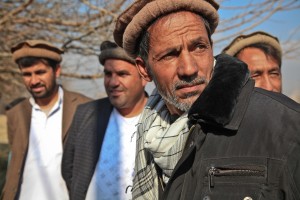After years of war, Afghanistan’s economic development has been slow. As the country struggled with conflict, the economy floundered. This forced some citizens to flee the nation for safer, more financially stable living conditions, leaving behind many who were struggling.
The last few years have offered significant growth in the economic progress of Afghanistan. Business is slowly starting to return, and people are looking to find stable work in the formerly war-torn nation. Understanding the current climate of enterprise within the country will assist those interested in finding ways to help Afghan communities.
Current Struggles
 The current climate in Afghanistan is positive, but tentative. Business is growing in Afghanistan as native Afghans return to their homes after decades of war, but the situation remains less than ideal.
The current climate in Afghanistan is positive, but tentative. Business is growing in Afghanistan as native Afghans return to their homes after decades of war, but the situation remains less than ideal.
There is evidence showing a positive change in the livelihoods of people within the country, but the long-term stability of that success is uncertain. Programs are being implemented, both by NGOs and governmental organizations, but the marketplace is evolving so quickly that it is often hard for these assistance programs to keep up.
Employers must offer assurances of safety to their employees, resulting in workplaces surrounded by concertina-wire that employ armed security guards. The cost of doing business has been driven up by NGO’s, a result of landlords wanting first-world prices for third-world properties.
There is also no established supply chain, and infrastructure is unreliable. Roads are unpaved, electricity and telephone services are still being developed, and many areas within Afghanistan are still off-grid.
Enterprise Development and the Role of Government
In spite of these struggles, business is starting to expand. To facilitate the growth of economic development and new businesses, the government must offer support to both individuals and corporations. Streamlining the process of starting a business in the country will encourage Afghans to start businesses for themselves. Offering support to small- and medium-sized businesses within the nation will help increase their viability, while encouraging economic growth.
Individuals within the nation are faced with trying to secure loans and grants with limited documentation, or with little evidence of their ability to repay. Banking institutions working with Afghan businesses must change their processes to accommodate the unique needs of the people.
In addition, further development of funding sources from outside the nation must be made available to business owners. Education on the types of funding available, as well as support for how to manage their businesses, should be offered to new entrepreneurs as part of the government’s role in building the economy.
A Look toward the Future
Microbusiness opportunities within the country are essential to providing the Afghan people with the means to support themselves. Offering families the ability to own and operate their own businesses not only provides stability for family units, it supports the stability of the nation as a whole. As a business grows, it offers employment opportunities to others, giving them financial stability and the means to contribute to the economic growth of the nation.
International charitable organizations at work within the country must find means to meet the needs of the people while offering sustainability for the future. Aid funding must find balance between the global and regional market dynamics by providing jobs that have security within a shifting marketplace. An influx of funding may temporarily boost the economy, but to realize long-term change, there must be a change in attitude and practice in regards to business principles.
Afghanistan is wrestling with the introduction of modern business practices into a culture steeped in centuries-old traditions. The last 30 years have brought entrepreneurial opportunities with the upsurge of technology, resources and economic growth.
With more citizens able to access educational resources and training, the next generation is equipped to take their country even farther on the road to stability. These new opportunities have strengthened the nation, and the emerging country is full of optimism for the future.

